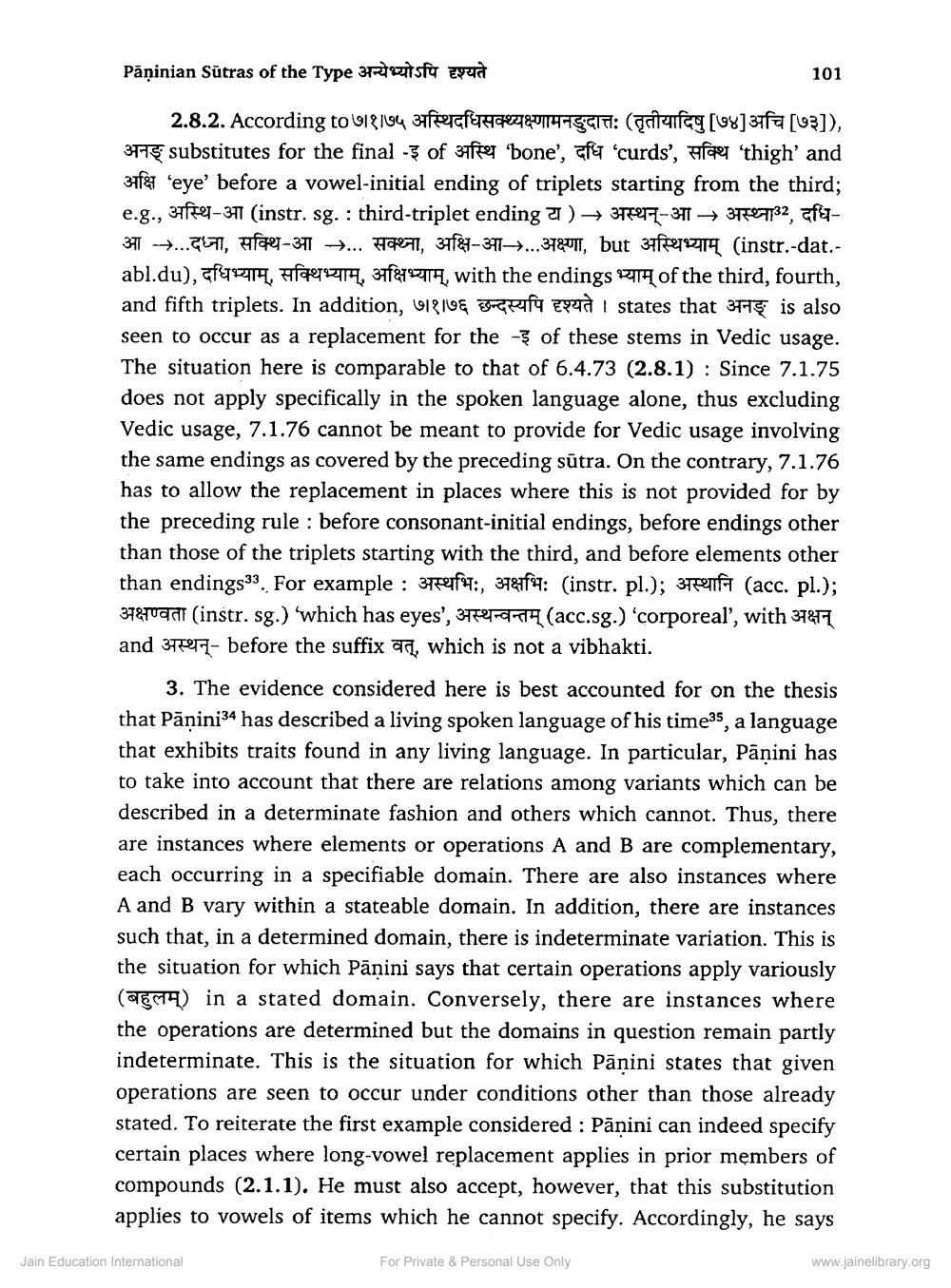________________
Paninian Sūtras of the Type अन्येभ्योऽपि दृश्यते
e.g.,
2.8.2. According to ७/१/७५ अस्थिदधिसक्थ्यक्ष्णामनडुदात्तः (तृतीयादिषु [७४] अचि [७३]), अनङ् substitutes for the final -इ of अस्थि 'bone', दधि 'curds', सक्थि 'thigh' and зf 'eye' before a vowel-initial ending of triplets starting from the third; अस्थि-आ (instr. sg. : third-triplet ending य ) → अस्थन् - आ अस्था32, दधिआ... दध्ना, सक्थि आ ... सक्थ्ना, अक्षि- आ...अक्ष्णा, but अस्थिभ्याम् (instr.-dat.abl.du), दधिभ्याम्, सक्थिभ्याम्, अक्षिभ्याम्, with the endings भ्याम् of the third, fourth, and fifth triplets. In addition, ७१/७६ छन्दस्यपि दृश्यते । states that अनङ् is also seen to occur as a replacement for the 3 of these stems in Vedic usage. The situation here is comparable to that of 6.4.73 (2.8.1): Since 7.1.75 does not apply specifically in the spoken language alone, thus excluding Vedic usage, 7.1.76 cannot be meant to provide for Vedic usage involving the same endings as covered by the preceding sutra. On the contrary, 7.1.76 has to allow the replacement in places where this is not provided for by the preceding rule: before consonant-initial endings, before endings other than those of the triplets starting with the third, and before elements other than endings33. For example: अस्थभि:, अक्षभि: (instr. pl.); अस्थानि (acc. pl.); अक्षण्वता (instr. sg.) 'which has eyes', अस्थन्वन्तम् (acc.sg.) 'corporeal', with अक्षन् and 3- before the suffix a, which is not a vibhakti.
3. The evidence considered here is best accounted for on the thesis that Panini34 has described a living spoken language of his time35, a language that exhibits traits found in any living language. In particular, Pāṇini has to take into account that there are relations among variants which can be described in a determinate fashion and others which cannot. Thus, there are instances where elements or operations A and B are complementary, each occurring in a specifiable domain. There are also instances where A and B vary within a stateable domain. In addition, there are instances such that, in a determined domain, there is indeterminate variation. This is the situation for which Panini says that certain operations apply variously (g) in a stated domain. Conversely, there are instances where the operations are determined but the domains in question remain partly indeterminate. This is the situation for which Panini states that given operations are seen to occur under conditions other than those already stated. To reiterate the first example considered: Panini can indeed specify certain places where long-vowel replacement applies in prior members of compounds (2.1.1). He must also accept, however, that this substitution applies to vowels of items which he cannot specify. Accordingly, he says
Jain Education International
101
For Private & Personal Use Only
www.jainelibrary.org




